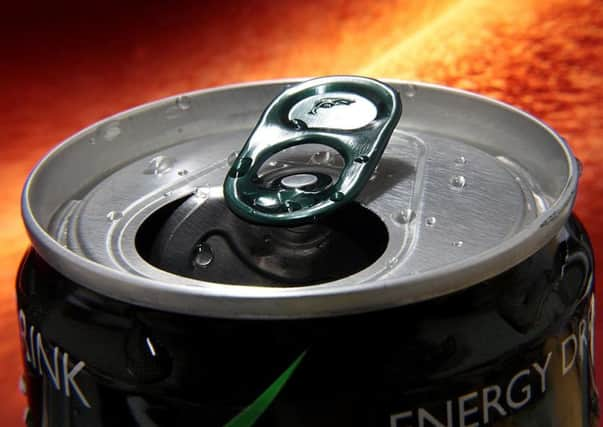Anna Turley: Time for a ban on energy drink sales to children


It is estimated that between 2006 and 2014 the sale of energy drinks in the UK increased by 155 per cent, and it is still growing. On average, young people in the UK consume more energy drinks than those in other EU countries, which means that it is British children who are most at risk from the growing energy drinks market.
Furthermore, it is becoming clearer that many children and parents are just not aware of the health risks of regularly consuming these drinks. Many will not be aware that on the back of a can of energy drink are the words “Not recommended for children”.
Advertisement
Hide AdAdvertisement
Hide AdThe Government rightly ensure that any product that is high in caffeine carries that warning. How can it be that the Government force companies to warn that their products are unsafe for children to drink, but follow with no enforcement measures or protections against the children drinking them?
I asked myself that question after watching Jamie Oliver’s Friday Night Feast. The programme investigated the dangers and the prevalence of children regularly drinking such drinks. I was shocked. A massive 68 per cent of those aged between 10 and 18 said they were consumers of energy drinks, with 12 per cent of those saying they drank as much as one litre of energy drink per session. To put that in perspective, a single litre bottle of energy drink can contain the equivalent caffeine of five shots of espresso and 12 teaspoons of sugar.
Even more shockingly, they can be purchased for as little as 79p. I like my coffee in the morning as much as anyone else, but I think people would join me in my shock if ahead of us in the morning queue for our lattes we saw a 10-year-old child order and drink a double, triple or even quadruple espresso. Why are children allowed to purchase these energy drinks?
In my area of Teesside earlier this year, a 16-year-old child was allowed to purchase 12 cans of energy drink from a single store. He went on to down five to six cans in a single sitting – the equivalent of approximately seven shots of espresso. He did it because he said he needed a boost to get through his session at college, but he was sent home from school later that day by teachers who were said to be fuming at his behaviour.
Advertisement
Hide AdAdvertisement
Hide AdLuckily, he had no immediate health problems as a result. However, had he drunk any more, it is possible that it could have caused cardiac arrest or other serious health problems. There are currently no protections or measures to limit the amount of these drinks that a child can purchase. It is a danger to young people and something that needs to be addressed.
One of the biggest problems is the way these drinks are promoted and advertised to children and young people. They are marketed as giving boosts to physical or mental performance, which means that children are purchasing and drinking them before school or sports, in the perverse belief that they are somehow improving their mental or physical health.
Regularly consuming large quantities of caffeine can result in increased blood pressure, sleep disturbance, headaches and stomach aches. Energy drinks have also been proven to affect children’s mental health, causing self-destructive behaviour, insomnia and poor lifestyle behaviours, such as a poor diet and the consumption of fast food.
It has also been shown that children who drink energy drinks are more likely to consume alcohol, smoke or take drugs in later life.
Advertisement
Hide AdAdvertisement
Hide AdI am sure that many companies will say that they do not directly market their products to children, but energy drinks are highly sweetened and are often sold for as little as 30p, and the packaging sometimes contains marketing techniques such as video game rewards.
Many teachers, teaching unions and school staff have expressed the view that students should not be able to purchase such drinks.
We know that consuming energy drinks is not healthy for children, that teachers and parents want them prohibited, that many retailers do not believe it is right that children can purchase them and that, given that the packaging carries a warning, energy drink producers themselves do not think children should be consuming them.
The Government has said in the past that they are willing to look at the issue, but will they commit to listening to parents, teachers, manufacturers, retailers and health campaigners such as Jamie Oliver and implement a full ban on the sale of these highly caffeinated and, frankly, highly dangerous energy drinks to children?
Anna Turley is the Labour MP for Redcar who led a Parliamentary debate on energy drinks. This is an edited version.